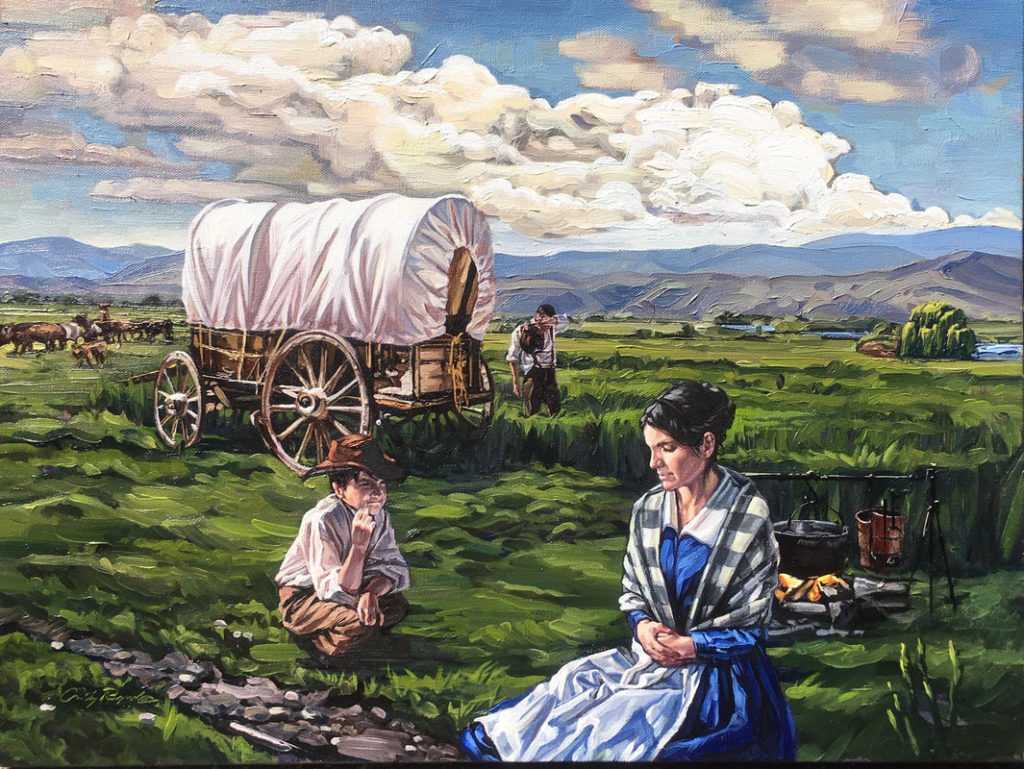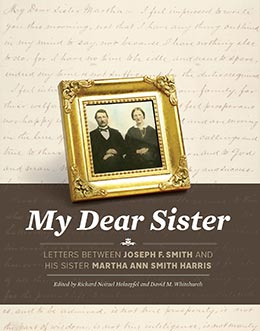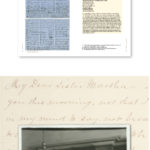
JOSEPH F. SMITH TELLS HIS STORY
In the fall of 1847 Mary Fielding Smith and her brother, Joseph Fielding, made a trip down the Missouri River to St. Joseph, Mo., for the purpose of obtaining provisions and clothing for the family, and for the journey across the plains the following spring. Joseph F. Smith was almost nine years of age at this time and accompanied his mother and uncle on this journey as a teamster. The following excerpts are from Life of Joseph F. Smith,” pp. 131-134.
Returning to Winter Quarters, we camped one evening in an open prairie on the Missouri River bottoms. We usually unyoked our oxen and turned them loose to feed during our encampments at night, but this time, on account of the proximity of [a] herd of cattle, fearing that they might get mixed up and driven off with them, we turned our oxen out to feed in their yokes. Next morning when we came to look them up, to our great disappointment our best yoke of oxen was not to be found. Uncle Fielding and I spent all the morning, well nigh until noon, hunting for them but without avail. Tramping through this grass and through the woods and over the bluffs, we were soaked to the skin, fatigued, disheartened and almost exhausted.
In this pitiable plight I was the first to return to our wagons, and as I approached I saw my mother kneeling down in prayer. I halted for a moment and then drew gently near enough to hear her pleading with the Lord not to suffer us to be left in this helpless condition, but to lead us to recover our lost team, that we might continue our travels in safety. When she arose from her knees I was standing near by. The first expression I caught upon her precious face was a lovely smile, which, discouraged as I was, gave me renewed hope and an assurance I had not felt before.
A few moments later Uncle Fielding came to the camp, wet with the dews, faint, fatigued and thoroughly disheartened. His first words were, “Well, Mary, the cattle are gone!”
Mother replied in a voice which fairly rang with cheerfulness, “Never mind, your breakfast has been waiting for hours; and now, while you and Joseph are eating, I will just take a walk out and see if I can find the cattle.”
My uncle held up his hands in blank astonishment, and if the Missouri River had suddenly turned to run up stream, neither of us could have been much more surprised. “Why, Mary,” he exclaimed, “What do you mean? We have been all over this country. . .and our oxen are gone–they are not to be found. I believe they have been driven off, and it is useless for you to attempt to do such a thing as to hunt for them.”
“Never mind me,” said mother, “get your breakfast and I will see,” and she started toward the river, following down spring creek. Before she was out of speaking distance the man in charge of the herd of beef cattle rode up from the opposite side of the creek and called out, “Madam, I saw your oxen over in that direction this morning about daybreak,” pointing in the opposite direction from that in which mother was going. We heard plainly what he said, but mother went right on, paid no attention to his remark and did not even turn her head to look at him. A moment later the man rode off rapidly toward his herd. and they were soon under full drive for the road leading toward Savannah. My mother continued straight down the little stream of water until she stood almost on the bank of the river, and then she beckoned to us. I outran my uncle and came first to the spot where my mother stood. There I saw our oxen fastened to a clump of willows growing in the bottom of a deep gulch . . . perfectly concealed from view.
Joseph F. Smith later said, “It was one of the first practical and positive demonstrations of the efficacy of prayer I had ever witnessed. It made an indelible impression on my mind, and has been a source of comfort, assurance and guidance to me throughout all of my life.” I chose to title this painting by Emily S. Reynolds of that formative event: “EVER AFTER, I KNEW.” Joseph knew God answers prayers; he knew of his mother’s profound faith.


